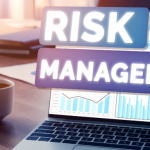Executive Summary
-
Blockchain technology is revolutionizing ESG compliance by enhancing transparency and traceability in climate risk assessments.
-
It aids in data integrity, ensuring that all stakeholders have access to accurate and reliable environmental data.
-
Blockchain’s decentralized nature helps mitigate data manipulation risks, a critical factor for ESG compliance.
-
The technology empowers organizations to make informed decisions by providing real-time updates on environmental metrics.
Introduction
In today’s rapidly evolving business landscape, companies are under increasing pressure to adopt sustainable practices. Environmental, Social, and Governance (ESG) compliance is at the forefront of this shift, with climate risk assessment tools playing a pivotal role. However, the challenge lies in ensuring the accuracy and reliability of environmental data. This is where blockchain technology steps in. This article explores how blockchain is transforming climate risk assessment tools, enhancing ESG compliance for businesses worldwide.
Definitions / Context
Blockchain Technology: A decentralized digital ledger that records transactions across multiple computers so that the record cannot be altered retroactively.
ESG Compliance: A set of standards for a company’s operations that socially conscious investors use to screen potential investments.
Climate Risk Assessment Tools: Instruments and methodologies used to evaluate the potential risks associated with climate change on business operations.
Benefits / Pros
-
Enhanced Transparency: Blockchain provides a transparent ledger of transactions, ensuring that all data related to climate risk assessments is visible and verifiable by all stakeholders.
-
Data Integrity: The decentralized nature of blockchain prevents unauthorized alterations, ensuring the integrity of environmental data.
-
Real-Time Data Access: Blockchain enables real-time updates, providing organizations with up-to-date information to make informed decisions.
-
Reduced Operational Costs: By automating data verification processes, blockchain reduces the need for third-party audits, cutting down on costs.
Risks / Cons / Challenges
-
Technical Complexity: Implementing blockchain technology requires technical expertise and can be resource-intensive.
-
Regulatory Uncertainty: As blockchain is a relatively new technology, there are few established regulatory frameworks governing its use in ESG compliance.
-
Data Privacy Concerns: While blockchain is transparent, it can also expose sensitive information if not properly managed.
Step-by-Step Process
-
Data Collection: Gather environmental data from various sources.
-
Data Recording: Use blockchain to record this data in a transparent and immutable manner.
-
Verification: Employ smart contracts to automate the verification of data, ensuring accuracy.
-
Analysis: Utilize blockchain‘s data analytics tools to assess climate risks effectively.
-
Reporting: Generate real-time reports for stakeholders, ensuring compliance and informed decision-making.
A leading renewable energy firm adopted blockchain technology to enhance its ESG compliance. By integrating blockchain into its climate risk assessment tools, the company achieved a 30% reduction in verification costs and improved data reliability, enabling more strategic decision-making.
Case Study: Renewable Energy Firm Implements Blockchain for ESG
Expert Tips / Strategic Insights
-
Stay Updated on Regulations: As blockchain regulations evolve, companies should stay informed to ensure compliance.
-
Invest in Training: Equip your team with the necessary skills to handle blockchain technology efficiently.
-
Collaborate with Experts: Consult with blockchain specialists to tailor solutions that meet your specific ESG compliance needs.
Tools / Resources / Calculators
-
Blockchain Environmental Data Platforms: Platforms like IBM’s Blockchain for Climate provide tools for managing and analyzing environmental data.
-
ESG Compliance Checklists: Ensure adherence to ESG standards with comprehensive checklists available from industry leaders.
Conclusion
Blockchain technology is proving to be a game-changer in climate risk assessments, offering enhanced transparency, data integrity, and cost efficiency. By integrating blockchain into ESG compliance processes, businesses can navigate the complexities of sustainable practices with greater ease. However, challenges such as regulatory uncertainty and technical complexity must be addressed. For a tailored approach to integrating blockchain into your ESG strategy, consider consulting with our experts.























